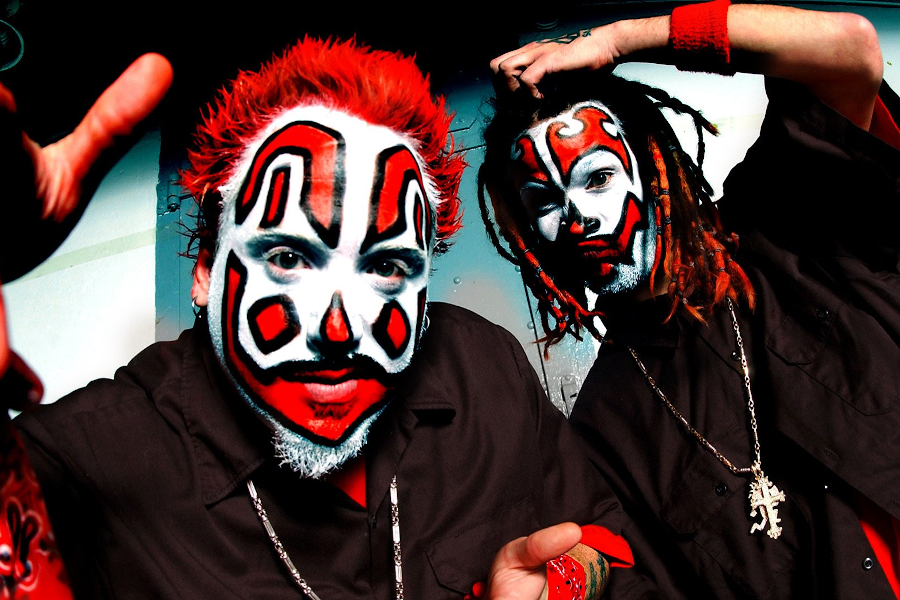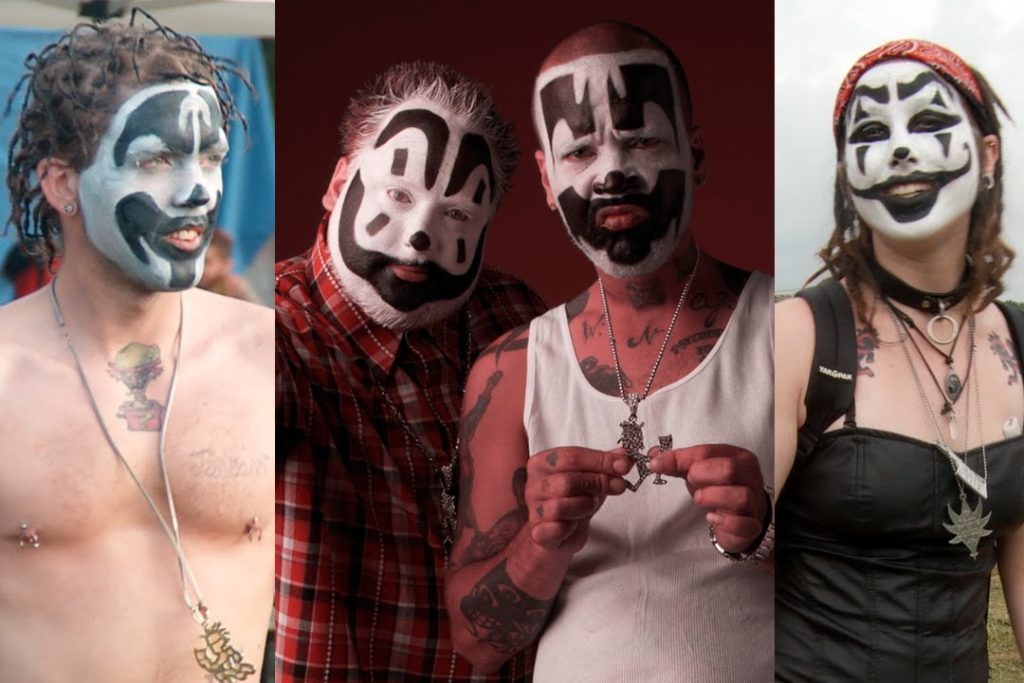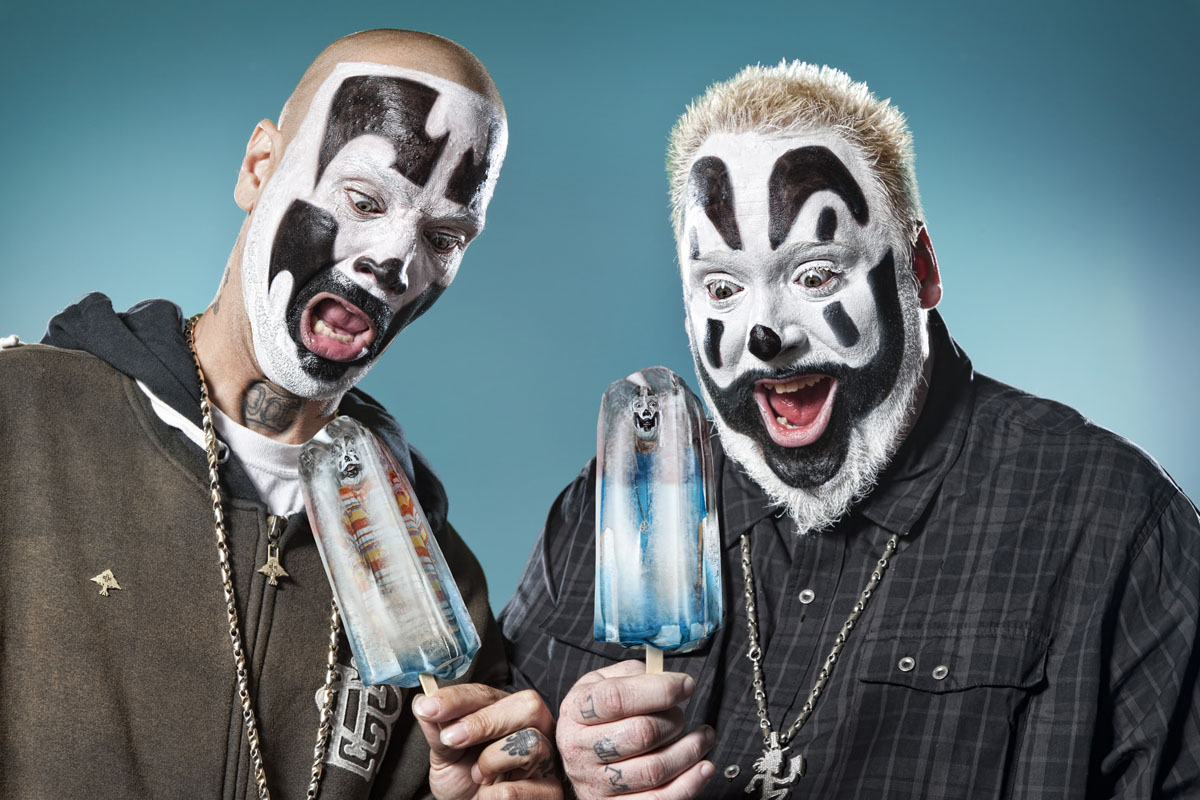Unpacking The Juggalo Culture: A Deep Dive
Is it possible for a subculture born from a niche music genre to become a cultural phenomenon, sparking both intense loyalty and widespread controversy? The Juggalo subculture, born from the music of Insane Clown Posse, has achieved exactly that, cultivating a fiercely devoted fanbase while simultaneously facing scrutiny and misunderstanding from the outside world.
The term "Juggalo" emerged during a 1994 live performance by Insane Clown Posse (ICP). During a performance of the song "The Juggla," Violent J addressed the audience as "Juggalos," and the positive response led to the duo, Violent J and Shaggy 2 Dope, embracing the term for themselves, their friends, family, and fans, extending to other artists on their record label, Psychopathic Records. The Juggalo label solidified connections among fans as ICP's popularity grew, fostering a strong sense of community and belonging.
However, the Juggalo subculture is not monolithic. While the majority of Juggalos are simply dedicated fans, there are those who engage in criminal activity. Some Juggalo gangs band together under the banner, but these groups are distinct from the general subculture, often having detailed handbooks outlining gang structures and responsibilities, with their primary objective being financial gain. This distinction is crucial, as it separates the vast majority of peaceful fans from the criminal element that has unfortunately associated itself with the Juggalo identity.
In stark contrast to the mainstream perception, the Juggalo community often embraces a strong sense of family and camaraderie. They have their own unique language, customs, and shared experiences, cultivated through their love of the band and the subculture. Annual events, such as the "Gathering of the Juggalos," provide a focal point for the community, uniting fans from all over.
The Juggalo subculture has faced its share of challenges, including its designation as a gang by the FBI. In 2016, fans of ICP announced they would stage a march in Washington, D.C., to protest this classification. This reflects the struggle to be understood and accepted, and to have the distinction between the fanbase and the criminal element acknowledged.
The Juggalo subculture's impact is also visible in the unique artistic expression that has developed. The use of clown makeup, which is a staple within the community, has even been found to confuse facial recognition technology, as discovered in late June 2018 by Twitter user @tahkion. The aesthetic of the Juggalo community, from its music and lyrics to the artwork and merchandise, is a reflection of the shared identity and experiences that bind the community together.
Its worth noting that the relationship between Juggalos and society has often been complex and, at times, contentious. Known as Juggalos and Juggalettes, these people have managed to build an entire community around a single band, and that community has developed a rather poor reputation among mainstream Americans.
The term Juggalo is not a bad or vulgar word, it simply means a passionate fan of the hip hop group Insane Clown Posse (ICP). Juggalos consider themselves a family and often wear clown face paint.
Now, let's delve a little deeper into the core elements of the Juggalo subculture.
| Aspect | Details |
|---|---|
| Origin | Emerged from the fanbase of the hip-hop group Insane Clown Posse (ICP) in 1994. |
| Core Identity | Fans who identify with the band's music, themes, and aesthetic, including the use of clown makeup. |
| Key Activities | Attending ICP concerts, participating in the "Gathering of the Juggalos" festival, and expressing their identity through artwork, fashion, and online interactions. |
| Community Values | Strong sense of family, loyalty, and camaraderie, with a focus on shared experiences. |
| Symbolism | Clown makeup, the hatchet man logo, and unique slang. |
| Relationship with ICP | Direct relationship between ICP and their fans, as violent J addressed the audience as juggalos in 1994. |
| Controversies | Designation as a gang by the FBI, leading to legal issues and discrimination. |
| Mainstream Perception | Often misunderstood and stereotyped, with negative perceptions of the culture. |
| Social Impact | Fosters a sense of community and belonging among its members, with some contributing positively to society. |
| Further Reading | Insane Clown Posse Official Website |
The Juggalo identity is constantly evolving and adapting. It continues to be the subject of ongoing dialogue and evolution. The story of Juggalo vs. Gigolo reveals the distinct approaches to the subculture, with Juggalos committing to their community and Gigolos adopting a more satirical viewpoint.
While the term "Gigolo" typically refers to a man who engages in serial relationships for financial support, it's a stark contrast to the community of Juggalos. There is no concrete association between these two terms.
In the end, the Juggalo community has demonstrated an ability to endure, to evolve, and to challenge the perceptions of those on the outside. The story of the Juggalo will always remain as a testament to the power of music, art, and the unwavering spirit of community.


